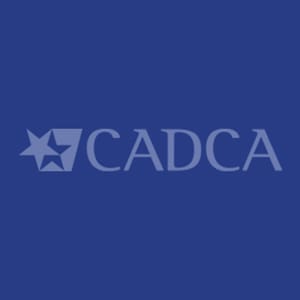One of my favorite poems is Robert Frost’s “Stopping by Woods on a Snowy Evening.” In it Frost talks of “promises to keep” and gives us that oft quoted line of “miles to go before I sleep.” The words of this iconic poem come to mind when I think of our nation’s response to the prescription drug abuse epidemic.
Since the crack epidemic of the 1980s, there is no drug-related issue that has captivated the nation more than prescription drug abuse – and with good reason. Unfortunately today, prescription drug abuse represents one of the biggest public health epidemics of our time. Opioid addiction continues to destroy thousands of lives and devastate communities.
According to the National Institute on Drug Abuse, an estimated 52 million people (20 percent of those aged 12 and older) have abused or misused prescription drugs at least once in their lifetimes. Exposures to pharmaceuticals account for about 40% of calls to poison centers for children aged 6 and under. In addition, the Centers for Disease Control and Prevention estimates that every day, 120 people die as a result of drug overdoses, many attributed to prescription painkillers.
We, collectively, as a public health community, have promises to keep –to the families and U.S. communities that are in crisis.
CADCA supports a comprehensive approach to addressing the prescription drug abuse epidemic that encompasses prevention, treatment and recovery. For example, we support expanding prescription drug monitoring programs (PDMPs), enhancing medical training in the proper prescribing of powerful prescription painkillers, requiring drug manufacturers to create abuse-deterrent formulations, dramatically expanding treatment options for those addicted to opioids and increasing access to the overdose reversal drug Naloxone.
And we believe wholeheartedly that we can prevent this problem before it starts. While it’s important to fix the enormous problem that we currently have and to save people from overdosing, preventing young people from abusing prescription drugs is possible.
Why do we believe in prevention, you ask? Because WE KNOW it works. Community coalitions, particularly those funded by the Drug-Free Communities program, have proven time and time again that they can prevent and reduce youth drug use. Just take the example of the Carter County Drug Free Coalition, which reduced the non-medical use of prescription drugs among 10th and 12th graders by over 80 percent.
And the number of young people abusing prescription medicines has been decreasing in recent years. For example, the most recent Monitoring the Future survey showed that fewer 12th-graders are abusing Rx medicines, dropping from 16 percent in 2013 to 14 percent in 2014. In 2005, 17 percent indicated misuse of any prescription drugs. This is progress.
Coalitions have played in role in that decline. Coalitions are our nation’s most effective vehicle for prevention because they use a comprehensive, data-driven approach that targets not only young people, but also parents, teachers, healthcare providers, law enforcement and other key sectors of a community. Coalitions address the local conditions of medicine abuse with a public health approach that looks at all the facets of the human condition – from our genetics and family life to our schools, systems and laws.
If it were up to me, every community in America would have an active prevention coalition.
As a mom, I want my child to grow up in a safe, healthy and drug-free environment. Not long ago, I spent several hours on a Friday afternoon talking about drug policy solutions with an intelligent senior government employee. He is a member of a local CADCA member coalition, and he also happens to be a man who recently lost his son to prescription drug abuse. Let me tell you, that night I hugged my son a little longer than usual.
Today for 120 families, their child – whether a toddler, teen or grown adult – is lost forever. We can help reduce these tragedies, and it all starts with prevention. But we all know, we have miles to go before we sleep.
If you are not a part of CADCA already, I hope you’ll take a moment and join the coalition movement. Help us end this epidemic.
Mary Elizabeth Elliott is a passionate mom and CADCA’s Vice President of Communications, Membership and IT. She will conduct a training on prescription drug abuse prevention at the National Rx Drug Abuse Summit in Atlanta. She can be reached at melliott@cadca.org.



